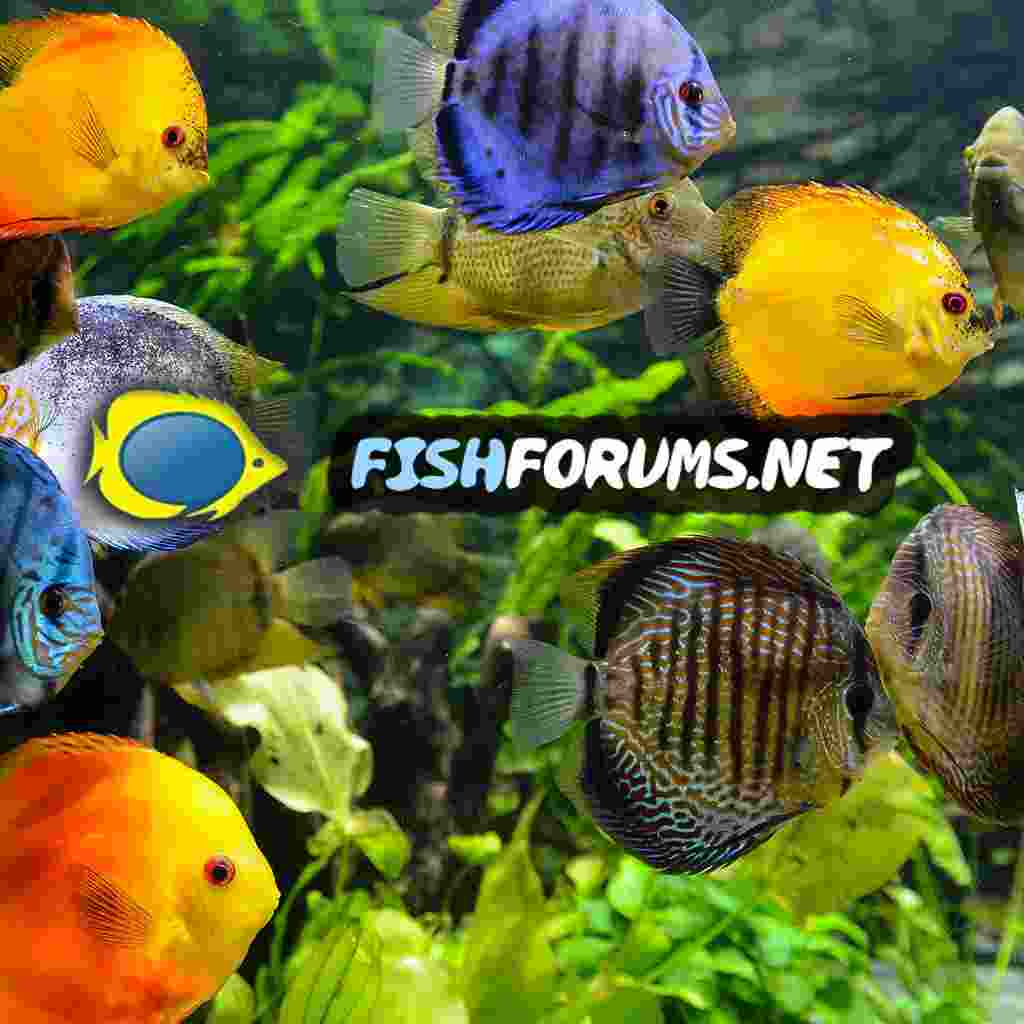Chronoloton
New Member
hello everyone,
as the title explains I keep Diskus and one of them is behaving weirdly.
I’ve been reading posts on here about inflated belly’s and discus, but the causes never fit to mine.
Has has a really sunken in belly and the head itself is pretty thin aswell.
He is not bullied. Only the biggest 2 males fight a little here and there. The small ones and especially are not picked at.
So he comes to eat and the only thing you can notice is that he eats slower than the rest. But I feed enough for them to pick up food from the sandbed for around 10 minutes.
All the others are healthy, I even have a breeding pair in that same tank.
But now comes the weird part. He is in this state for close to 10 months now.every post or Thread is saying he should be dead after 2 weeks max. He eats, he has enough food around him, Artemia,mysis,Krill and clam meat every day.but he isn’t gaining any body volume. All of his brother have doubled in size by now.
What can I do? Is there something to help his belly?
He survived 2 tanks rebuilds and moving once.



as the title explains I keep Diskus and one of them is behaving weirdly.
I’ve been reading posts on here about inflated belly’s and discus, but the causes never fit to mine.
Has has a really sunken in belly and the head itself is pretty thin aswell.
He is not bullied. Only the biggest 2 males fight a little here and there. The small ones and especially are not picked at.
So he comes to eat and the only thing you can notice is that he eats slower than the rest. But I feed enough for them to pick up food from the sandbed for around 10 minutes.
All the others are healthy, I even have a breeding pair in that same tank.
But now comes the weird part. He is in this state for close to 10 months now.every post or Thread is saying he should be dead after 2 weeks max. He eats, he has enough food around him, Artemia,mysis,Krill and clam meat every day.but he isn’t gaining any body volume. All of his brother have doubled in size by now.
What can I do? Is there something to help his belly?
He survived 2 tanks rebuilds and moving once.


